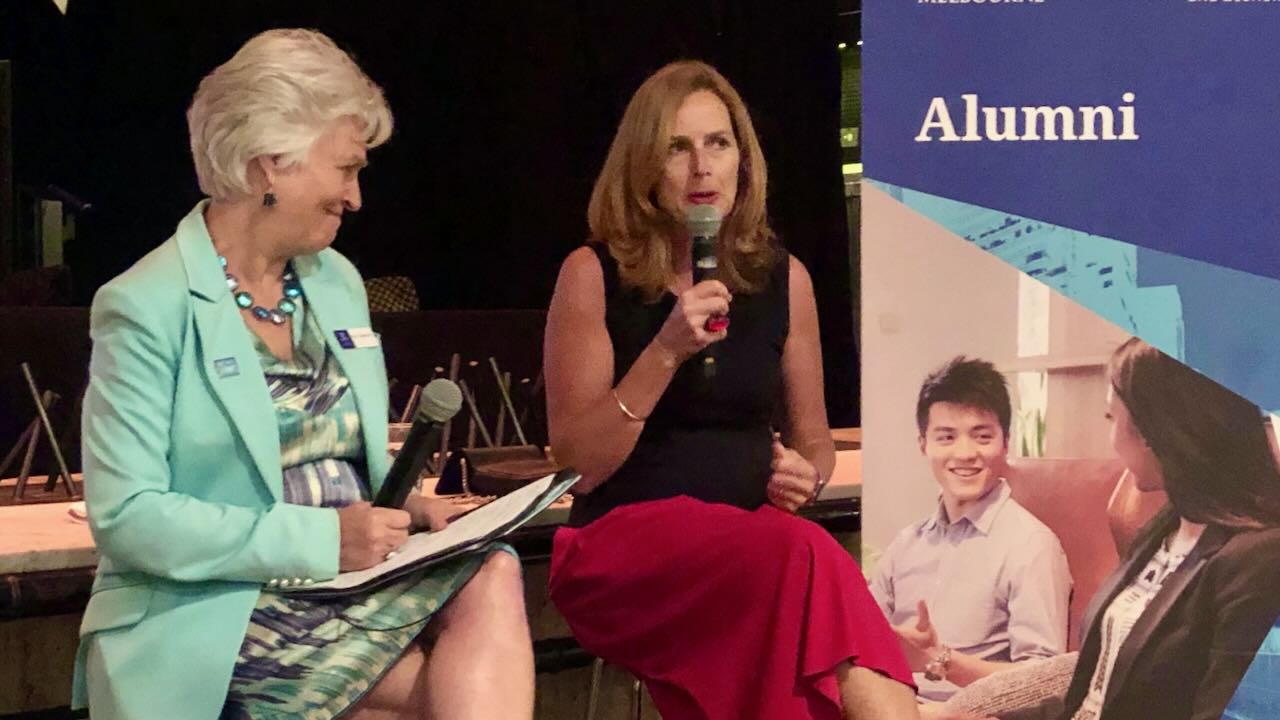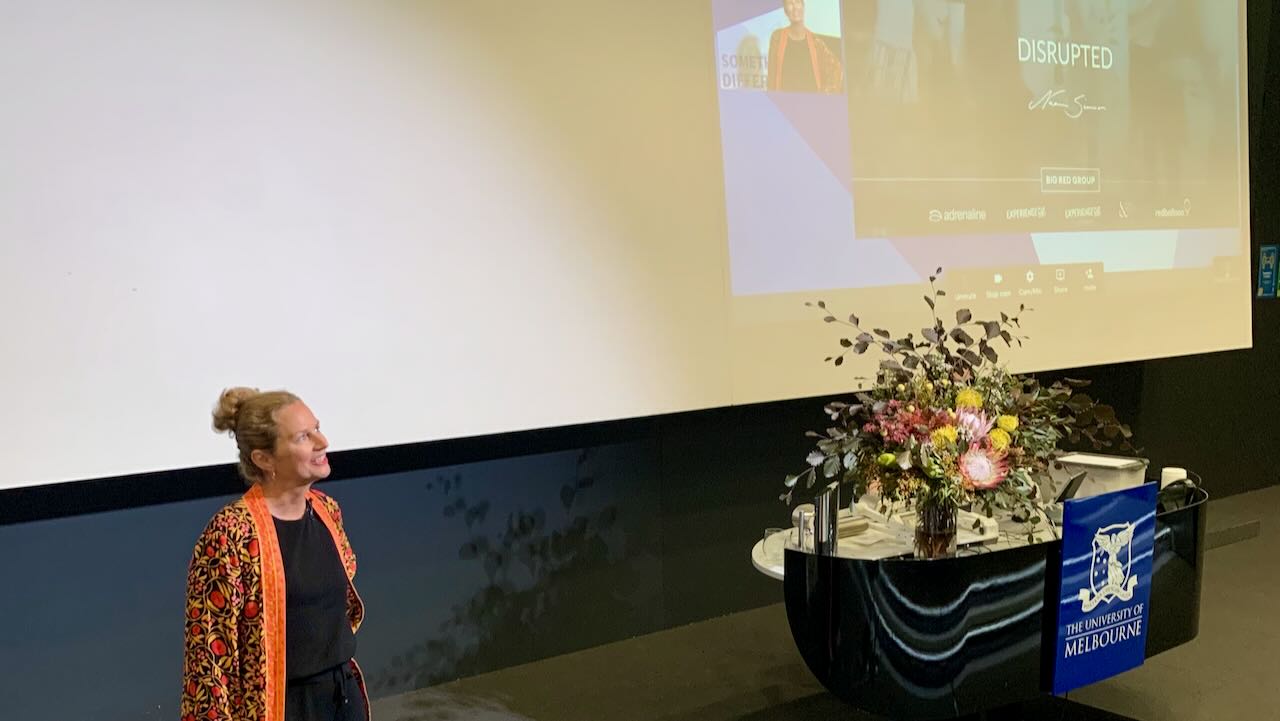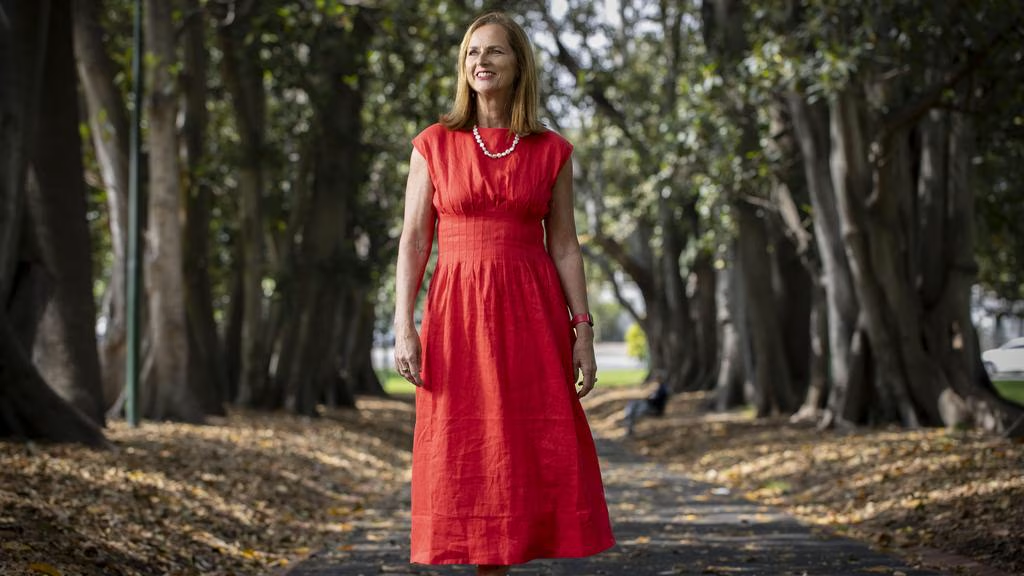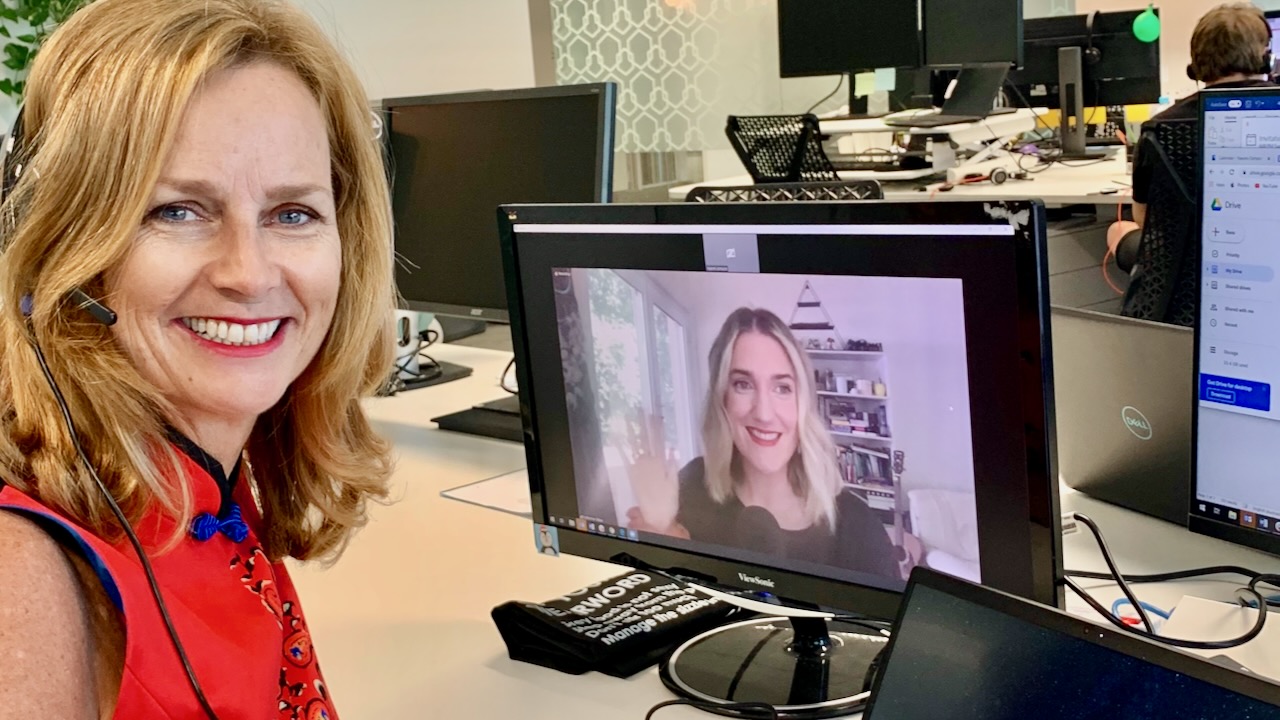The Degree That Matters Most (And They Don't Teach It at Uni)
Every year, thousands of bright, ambitious Aussies head off to university. They enrol in degrees for business, marketing, law, or accounting, diligently studying to get the piece of paper that they believe is the ticket to a successful career. We have this idea that a formal education is the essential prerequisite for success.
I did it. I got my degree. I’m a big believer in lifelong learning. But after decades of building businesses from the ground up and mentoring countless entrepreneurs, I can tell you with absolute certainty that the most critical curriculum for success as a small business owner is one that is not taught in any lecture hall. Tertiary education is extremely valuable in helping to teach us curiosity, research skills and how to structure and argument (I remember those group projects) - but there is so much more.
It’s the unwritten degree in resilience. The masterclass in managing your own mind. The PhD in not just surviving the pressure, but thriving within it.
It's the ongoing, gruelling, and profoundly important study of small business wellbeing.

We obsess over learning the 'hard skills'—how to read a balance sheet, how to build a marketing funnel, how to negotiate with a supplier. We treat our business like a complex piece of machinery and study its every cog and gear. But we forget one fundamental, inescapable truth: the machine doesn't run without a power source. And that power source is you.
Your physical health, your mental clarity, and your emotional resilience are not 'soft skills' to think about when you have more time. They are the core infrastructure of your entire enterprise. And if that infrastructure fails, the whole business comes crumbling down.
This isn't a lecture. This is a conversation I wish someone had had with me when I was sleeping four hours a night and living on adrenaline and stale coffee, thinking that was the price of ambition. This is your guide to the most important education you'll ever receive: the one that teaches you how to build a great business without sacrificing yourself in the process.
The Myth of the "Business Brain": Why Your Body is Your Most Important Hardware
We entrepreneurs like to think of ourselves as 'brains'. We're ideas people. Strategists. Problem-solvers. We live in our heads, and we often treat our bodies as inconvenient luggage that our brain has to carry around. We ignore the warning signs—the persistent headaches, the churning stomach, the exhaustion that even a triple-shot latte can't fix—believing our sheer willpower can override them.
That is a dangerous delusion.

Imagine your brain is the most sophisticated, powerful software in the world. It’s capable of incredible creativity, strategy, and innovation. Now imagine you're trying to run that software on a 20-year-old computer that is overheating, riddled with viruses, and has its power cord frayed and sparking.
It doesn’t matter how brilliant the software is. The hardware will fail.
Your body is your hardware. Your physical health dictates the quality of your thinking, the stability of your emotions, and the depth of your resilience. Investing in your physical wellbeing isn't selfish; it's the most strategic business investment you can possibly make.
Core Subject 1: The Physiology of Peak Performance
If this were a university course, this would be the foundational subject you’d take in your first year. It’s about the non-negotiable inputs your body needs to function as a high-performance machine.
Module 1.1: Sleep as a Strategic Weapon
We need to stop wearing our exhaustion like a badge of honour. In the small business world, "I only got four hours of sleep last night" is often said with a hint of pride, as if it proves our commitment. It doesn't. It proves we're actively sabotaging our greatest asset.
- Decision Fatigue is Real: When you're tired, you make poorer decisions. You're more likely to take a bad deal, hire the wrong person, or snap at a key employee. A single bad decision made from a place of exhaustion can cost your business far more than an extra hour or two of "hustle."
- Creativity Sleeps In: Your brain solves problems while you sleep. It connects ideas and finds novel solutions. That "aha!" moment you have in the shower often comes because you gave your brain the downtime it needed to work its magic.
Your Practical Assignment: For one week, set a non-negotiable "power down" alarm on your phone for 9 pm. When it goes off, the laptop closes, the phone goes on the charger (preferably in another room), and you do something non-digital for an hour. Read a book, chat with your partner, listen to music. Treat it with the same seriousness as a meeting with your most important client.
Module 1.2: Fuelling the Founder

It's ironic, isn't it? We'll spend hours researching the best software for our business but spend seconds deciding what to eat, usually grabbing whatever is fastest. We expect our brains to perform at an elite level, but we fuel them with servo pies and lukewarm coffee.
Your Practical Assignment: Start with water. Dehydration is one of the biggest culprits of mid-afternoon brain fog and fatigue. Put a one-litre bottle of water on your desk each morning and make it your mission to finish it by lunchtime. And give yourself the gift of a five-minute, screen-free lunch break. Step outside. Breathe some fresh air. It’s a tiny investment that pays huge dividends in afternoon productivity.
Module 1.3: Movement as a Mental Elixir
When you’re stressed and overwhelmed, the thought of "exercise" can feel like another crushing chore. So let’s not call it that. Let’s call it a "mental reset." Your body was designed to move, and when it does, it releases endorphins and clears out the stress-induced cobwebs in your mind.
Your Practical Assignment: Don't join a gym (unless you want to!). Instead, find ways to bake movement into your workday. Take phone calls while walking around the block. If you're stuck on a tricky problem, don't stare harder at the screen—go for a 10-minute "thinking walk." The rhythm of walking can unlock solutions your desk-bound brain can't find.
The Psychology of a Sustainable Career
This is the advanced course. The one that deals with the invisible, internal battles every small business owner faces. The loneliness, the anxiety, the crushing weight of responsibility. Mastering your inner world is the key to longevity in this game.
Module 2.1: The Cure for Founder's Isolation
The loneliness of being at the top (even if the top is just you in a home office) is profound. You can't share your deepest fears with your staff. You don't want to constantly burden your family. Your mates who work 9-to-5 just don't get it. This isolation is a breeding ground for anxiety and burnout.
Your Practical Assignment: You must find your tribe. This is not optional; it is essential for your small business wellbeing. Seek out other business owners. Join a local chamber of commerce, find an industry association, or even create your own informal "board of directors" with two or three other founders you trust. The goal is to have a regular catch-up where you can be brutally honest. The moment you hear someone you respect say, "Mate, I've been there. It's bloody tough," the feeling of isolation starts to dissolve.
Module 2.2: The Art of Strategic Boundaries
As a founder, your business can feel like an octopus, its tentacles reaching into every corner of your life. It's on your mind when you wake up, when you're having dinner, when you're trying to fall asleep. Without boundaries, your life becomes the business.
Your Practical Assignment: Create a "third space" in your life. This is a place or activity that is completely separate from home and work. It could be a sports team, a choir, a volunteer group, a pottery class. It’s a scheduled time where you are not "the boss." You are just a bass player, a centre-forward, or a volunteer. This forced disconnection is incredibly restorative and essential for maintaining your own identity outside of your work.
Module 2.3: Taming the Inner Critic
Every business owner has a loud, persistent inner critic. It's the voice that magnifies your mistakes, dismisses your successes, and constantly reminds you of everything you haven't done yet. Left unchecked, this voice will erode your confidence and your joy.
Your Practical Assignment: Create a "Kudos File." Every time you get a positive email from a client, a great review, or a word of thanks from a team member, save it. Create a folder in your inbox or a document on your computer. When the inner critic gets loud, open the folder. It's not about ego; it's about confronting your negative self-talk with cold, hard evidence of your competence and the value you bring to the world.

Your Final Thesis: A Life, Not Just a Living
What's the point of all this? What's the final exam in the university of small business wellbeing?
It’s this: you get to define what "passing with honours" means. The world will tell you it's about your revenue, your growth percentage, your exit strategy. But you have the power to write your own thesis.
Your real graduation is the day you realise that the purpose of your business is to build a life you love. Not a life you need to escape from.
I encourage you to create your own "Rich List." Write down what a truly wealthy life looks like to you, beyond the financials.
- Having the flexibility to go to every one of my daughter's school sports days.
- Being able to switch off my phone for an entire weekend without feeling anxious.
- Having the mental space and energy to be a present, engaged partner.
- Waking up on a Monday morning feeling calm and energised, not full of dread.
This list becomes your true definition of success. It's the framework for every decision you make. It ensures the business you are building is a vehicle for your wellbeing, not a threat to it.
The most successful entrepreneurs I know are not the ones with the biggest companies. They are the ones who have learned that their wellbeing is not a cost to be minimised, but an asset to be invested in. They are the ones who have passed the only course that truly matters.
So, what's the first class you're going to enrol in?
Frequently Asked Questions (FAQs) on Is University Worth It?
Is a university degree still a good investment in today's job market?
For many professions, a university degree remains a valuable investment that can lead to higher lifetime earnings and open doors to specific career paths. However, its value is increasingly measured not just by the qualification itself, but by the critical thinking, problem-solving, and networking skills you gain. The "worth" depends heavily on the field of study and the individual's commitment to leveraging the entire university experience.
What are the main benefits of university beyond the academic qualification?
Beyond the formal qualification, university offers immense benefits in personal and professional development. It's a unique environment for building a diverse network of peers and mentors, learning how to learn, and developing crucial life skills like time management, self-discipline, and the ability to navigate complex social and intellectual landscapes.
What are the most viable alternatives to a traditional university degree?
Viable alternatives are growing rapidly and include specialized vocational training, industry-specific certifications, digital bootcamps, and apprenticeships. These paths often provide a more direct and cost-effective route to acquiring in-demand, job-ready skills in fields like technology, trades, and digital marketing.
How has the value of a university education changed for aspiring entrepreneurs?
For entrepreneurs, the value has shifted. While university can provide a valuable network and foundational business knowledge, it is no longer a prerequisite for success. The modern entrepreneurial path often prioritizes practical experience, speed to market, and real-world learning over a formal degree, with many successful founders choosing to learn by doing.
How should I decide if university is the right path for me?
The decision should be based on your career aspirations and learning style. If your chosen profession requires a degree (like medicine or law), the path is clear. If not, weigh the unique benefits of a university's structured learning and networking opportunities against the more direct, skills-focused training offered by alternative pathways, considering both the financial and time investment required.





